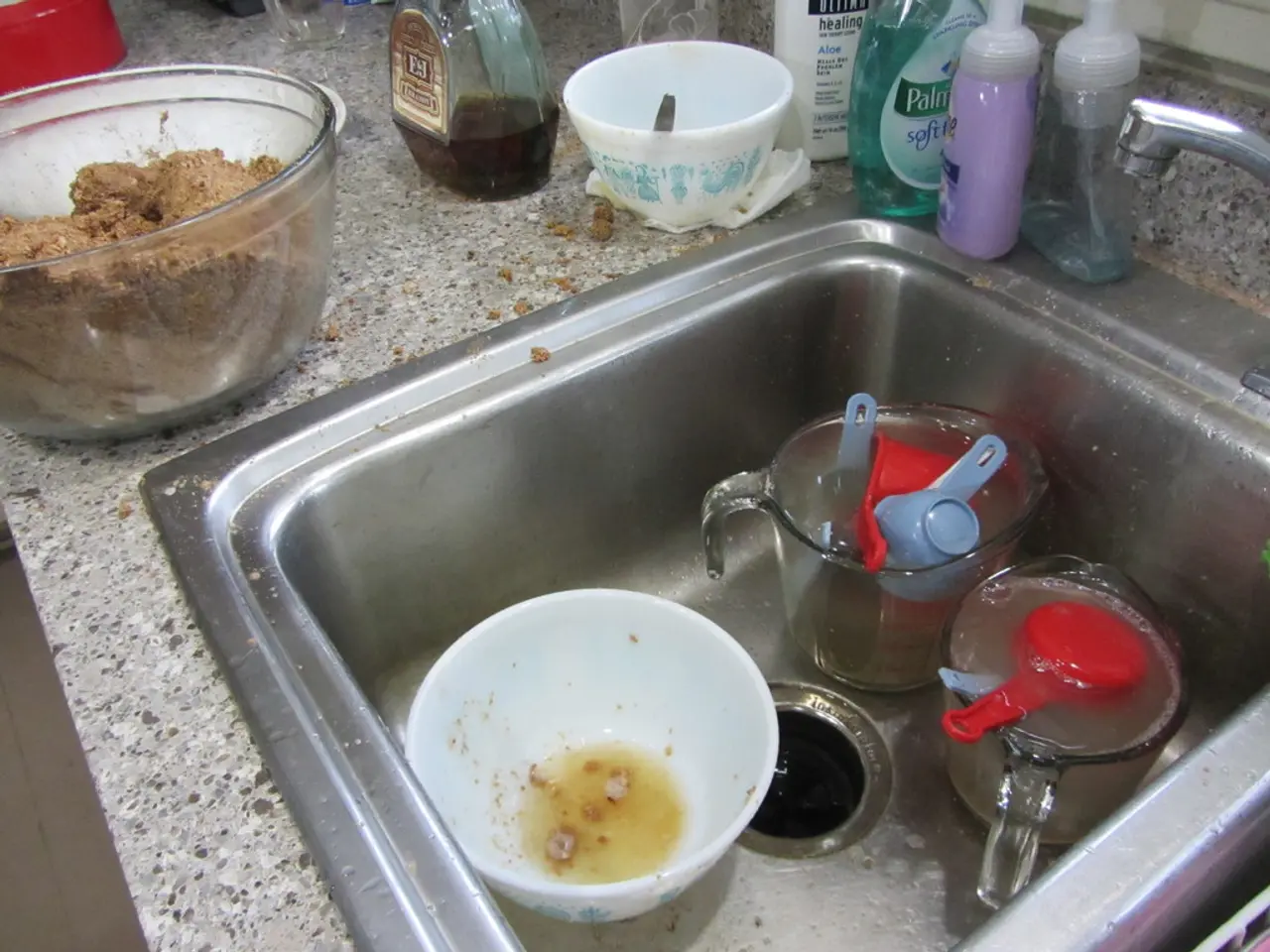"Belarusian Doctor Details Methods for Liver and Intestine Detoxification"
In the realm of health and wellness, the practice of intestinal and liver cleanses has gained popularity among certain circles. However, evidence-based medicine paints a different picture, raising concerns about potential risks and harmful effects.
For intestinal (colon) cleanses, the risks are significant. Dehydration and electrolyte imbalances can occur due to excessive fluid loss from repeated flushing or use of laxatives or enemas, particularly dangerous for the elderly and those with underlying health conditions. The disruption of normal gut bacteria and natural colon function can increase susceptibility to infections, especially if non-sterile equipment is used. Improper administration can lead to injury, while dependence on laxatives or enemas may impair normal bowel function. Moreover, the lack of FDA regulation means products can contain undisclosed or unsafe ingredients with unpredictable effects.
Liver cleanses or detox drinks/supplements also pose risks. Concentrated extracts like green tea extract or turmeric-black pepper combinations can potentially cause liver damage. Unregulated supplements may contain contaminants such as heavy metals or pesticides and may not list all ingredients accurately. They can interact with common medications, leading to adverse effects or reduced medication efficacy. Gastrointestinal side effects such as nausea, cramping, diarrhea, and bloating are also common.
Despite the growing popularity of these cleansing practices, most clinical studies claiming benefits are methodologically flawed, with small sample sizes or animal models, limiting reliable conclusions about efficacy. Moreover, detox diets or cleanses promote a quick-fix mindset rather than sustainable lifestyle habits, with no strong evidence for improved liver function or significant health gains.
Gastroenterologist Olga Pane, in the BelTA project "In the Know. Health", emphasised the importance of not interfering with the intestines' natural processes, as problems may take a long time for a doctor to solve. She advised against self-cleaning procedures that could potentially harm the intestines and lead to complications.
The liver and intestines are self-sufficient organs when maintained with a healthy lifestyle. Adequate nutrition, enough fiber, and beneficial substances in the diet are crucial for the gastrointestinal tract and the liver to function properly. Alcohol abuse and excessive fat intake should be avoided to ensure their proper functioning without the need for additional cleaning procedures.
The 'gut-brain' axis, a focus of global practice, relies on the beneficial bacteria living in the intestines, which help produce beneficial substances for the brain. Disrupting these processes can have far-reaching effects on other vital organs. Therefore, it is essential to maintain a healthy lifestyle rather than resorting to potentially harmful cleansing practices.
In conclusion, the scientific consensus is that natural body detoxification processes are sufficient in healthy individuals, and these cleansing practices often carry unnecessary risks without proven benefits. Medical professionals advise caution, recommend consulting healthcare providers before use, and emphasise diet and lifestyle changes as safer, evidence-supported approaches to maintaining liver and intestinal health.
- Science and evidence-based medicine question the safety and efficacy of therapies and treatments aimed at cleansing the intestines and liver, as they may lead to potential risks such as dehydration, electrolyte imbalances, disruption of gut bacteria, and liver damage.
- In the realm of health-and-wellness, mental-health, and nutrition, it is crucial to prioritize a healthy lifestyle, adequate nutrition, and enough fiber to support proper intestinal and liver function, rather than resorting to detox diets or cleanses with unproven benefits and potential risks.
- The scientific consensus emphasizes the importance of evidence-supported approaches to maintaining liver and intestinal health, as opposed to risky and unproven cleansing practices, and advises consulting healthcare providers before making any significant changes to one's diet or lifestyle.




